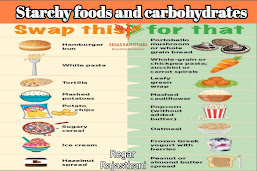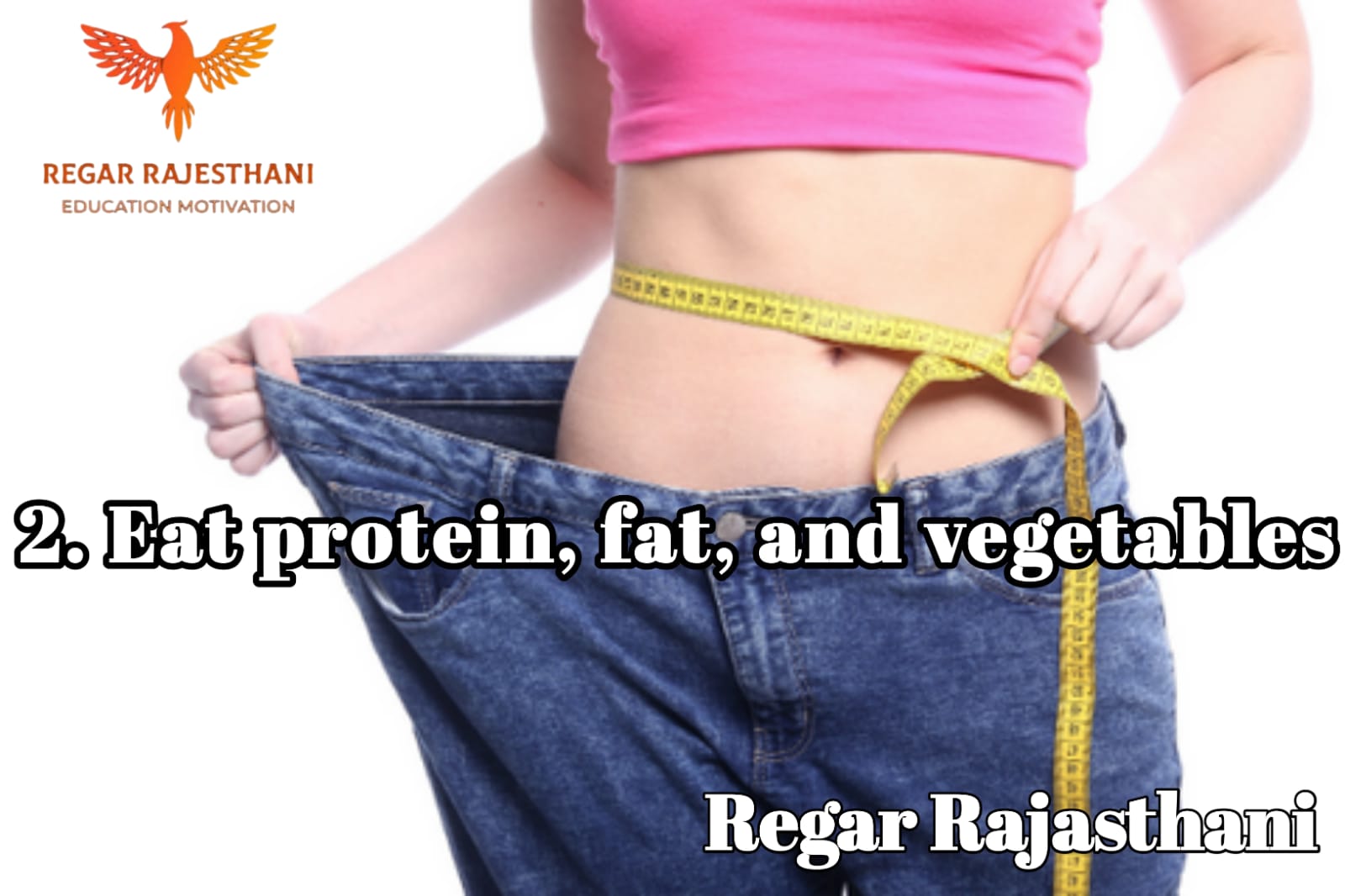Weight loss made easy with these science-backed tips for fast and sustainable results.
Losing weight safely and effectively is a common goal for many people. To achieve this, it is generally recommended to aim for a gradual weight loss of 1-2 pounds per week, as this approach is considered safe and sustainable. Several science-backed strategies can assist you in reaching your weight loss goals.
One key strategy is to reduce your carbohydrate intake. This doesn't mean eliminating carbs entirely, but rather choosing complex carbohydrates over refined sugars and processed foods. Complex carbs, such as whole grains and vegetables, provide more nutrients and help regulate blood sugar levels, supporting weight loss efforts.
Another helpful tactic is to increase your protein consumption.
Protein-rich foods can help control appetite, reduce cravings, and promote muscle growth. This is important because muscle mass plays a role in boosting metabolism, helping you burn more calories even at rest.
Incorporating strength training or weightlifting into your exercise routine can also aid in weight loss. Building lean muscle not only improves body composition but also increases your metabolic rate, contributing to more efficient calorie burning.
Sleep is another important factor to consider. Aim to get enough quality sleep each night, as sleep deprivation can disrupt hunger hormones and negatively impact your metabolism. By prioritizing restful sleep, you support your weight loss journey.
While weight loss is not a magic solution for all health issues, if your doctor advises it, there are safe ways to proceed. It's important to find an eating plan that works for you, as many diets can leave you feeling unsatisfied or eliminate important food groups. Remember, everyone's needs and preferences are unique, and finding an approach that suits you is crucial.
While some may benefit from low-carb diets or whole-food-focused approaches, the underlying principles for weight loss remain the same. These principles include reducing appetite, achieving consistent weight loss over time, and improving metabolic health.
Lastly, it's important to emphasize that quick weight loss is often not sustainable or healthy in the long term. Instead, focus on adopting lifestyle changes that are maintainable and promote overall well-being. By making gradual adjustments and establishing healthy habits, you increase your chances of achieving lasting weight loss and improved overall health.
How to Lose Weight in 3 Simple Steps
1. Cut back on refined carbs
To facilitate quick weight loss, one effective approach is to reduce your intake of sugars and starches, commonly referred to as carbohydrates. It can be achieved through a low-carb eating plan or by replacing refined carbs with whole grains.
By doing so, you can experience a decrease in hunger levels and naturally consume fewer calories. Additionally, a low-carb eating plan encourages the utilization of stored fat as an energy source instead of relying on carbs.
For those who prefer consuming complex carbs like whole grains while maintaining a calorie deficit, the higher fiber content and slower digestion of these foods contribute to increased feelings of fullness and satisfaction.
Studies have indicated that a very low carbohydrate diet can be beneficial for weight loss in older populations. It may also reduce appetite, resulting in a decreased calorie intake without conscious effort or hunger.
It's important to note that the long-term effects of a low-carb diet are still being researched, and adhering to such a diet can be challenging, potentially leading to yo-yo dieting and difficulty in maintaining a healthy weight.
Alternatively, reducing calorie intake overall can also lead to weight loss and may be more sustainable in the long run.
If you prefer a diet that emphasizes whole grains instead of refined carbs, evidence suggests that a high intake of whole grains is associated with a lower body mass index.
To determine the best weight loss approach for you, it is recommended to consult with your doctor for personalized recommendations.
In summary, reducing refined carbohydrates can help control appetite, lower insulin levels, and facilitate weight loss. However, the long-term effects of a low-carb diet are still uncertain, and a reduced calorie diet may be more sustainable for some individuals.
2. Eat protein, fat, and vegetables
To promote weight loss and maintain a balanced diet, it is important to include a variety of foods in each meal. Here are some key components to consider when planning your meals:
Protein source: Include a serving of protein in your meals, such as lean meats, poultry, fish, tofu, beans, or Greek yogurt. "The Protein helps to keep you feeling full and supports muscle maintain"
Fat source: Incorporate a healthy fat source into your meals, such as avocado, nuts, seeds, olive oil, or nut butter. Healthy fats provide essential nutrients and contribute to satiety.
Chronic Pain Syndrome Icd 10 code
Vegetables: Make sure to include a generous portion of non-starchy vegetables, such as leafy greens, broccoli, cauliflower, peppers, or carrots. Vegetables are low in calories and high in fiber, helping you feel satisfied while providing essential vitamins and minerals.
Complex carbohydrates: Opt for small portions of complex carbohydrates like whole grains, brown rice, quinoa, or sweet potatoes. These carbohydrates provide sustained energy and additional fiber.
To get practical meal ideas and inspiration, you can explore resources like:
Low carb meal plans: These plans offer guidance on creating meals with lower carbohydrate content.
Lower calorie meal plans: These plans provide options for meals with reduced calorie intake.
Lists of healthy low carb recipes: These resources offer a variety of recipes that are low in carbohydrates but still nutritious and flavorful.
Lists of low-calorie foods: These lists highlight foods that are low in calories, helping you make informed choices.
By incorporating these components and utilizing helpful resources, you can assemble satisfying and nutritious meals that support your weight loss goals.
Protein
Consuming an adequate amount of protein is crucial for maintaining health and preserving muscle mass during weight loss. Research suggests that including enough protein in your diet can improve various aspects of your well-being, including cardiometabolic risk factors, appetite control, and body weight management.
The recommended daily protein intake varies depending on factors such as age, sex, and physical activity level. On average, men typically require about 56-91 grams per day, while women require around 46-75 grams per day. However, individual needs may difference.
Here are some guidelines to help you determine an appropriate protein intake without overdoing it:
"0.8 grams of protein per, kilogram of body weight"
1-1.2 grams of protein per kilogram of body weight for individuals aged 65 and older
1.4-2 grams of protein per kilogram of body weight for athletes
Consuming adequate protein can also contribute to reduced cravings and snacking by promoting a feeling of fullness and satisfaction.
When it comes to protein sources, there are various options to choose from. Some healthy protein sources include:
Meat: Beef, chicken, pork, and lamb.
Fish and seafood: Salmon, trout, sardines, and shrimp.
Plant-based proteins - Beans or legumes and quinoa & tempeh and tofu.
By incorporating these protein-rich foods into your meals, you can ensure you're meeting your protein needs while enjoying a balanced and nutritious diet.
Vegetables
Including leafy green vegetables in your meals is highly beneficial as they are packed with essential nutrients while being low in calories and carbs. You can enjoy large portions of leafy greens without significantly increasing your calorie or carbohydrate intake.
While all vegetables contribute to a healthy diet, it's important to note that certain vegetables, such as potatoes, sweet potatoes, winter squash, and corn, contain higher levels of carbs.
Although these vegetables provide fiber (making them complex carbs), it's advisable to be mindful of the serving size when incorporating them into your meals.
Here are some vegetables that you can include more of in your diet:
Broccoli: Rich in vitamins C and K, as well as fiber.
Cauliflower: A versatile vegetable that is high in fiber and offers vitamins C and K.
Spinach: Packed with iron, calcium, vitamins A and K, and other important nutrients.
Tomatoes: A good source of vitamins C and K, as well as antioxidants like lycopene.
Kale: A nutrient powerhouse with vitamins A, C, and K, and various minerals.
Brussels sprouts: Rich in fiber, vitamins C and K, and other beneficial compounds.
Cabbage: Offers fiber, vitamins C and K, and is often used in various culinary preparations.
Swiss chard: A leafy green packed with vitamins A, K, and C, as well as minerals like magnesium and potassium.
Lettuce: Low in calories and carbs, making it a great base for salads or lettuce wraps.
Cucumber: Hydrating and low in calories, cucumbers are a refreshing addition to meals.
Peppers: Whether bell peppers or chili peppers, they provide vitamins A and C, as well as a touch of heat to dishes.
By incorporating these nutrient-rich vegetables into your meals, you can enjoy a wide range of flavors, textures, and health benefits while keeping your calorie and carbohydrate intake in check.
Healthy fats
Including healthy fats in your diet is essential, regardless of the eating plan you choose. Don't be afraid of consuming fats as your body needs them for various functions. Opt for healthier fat sources like olive oil and avocado oil, which are excellent choices to incorporate into your eating plan. Nuts, seeds, olives, and avocados are not only delicious but also provide beneficial fats that support overall health.
However, it's important to moderate the consumption of fats like butter and coconut oil due to their higher saturated fat content.
To create well-rounded and satisfying meals, aim to include a protein source, a healthy fat source, a complex carbohydrate, and a generous serving of vegetables. This balanced approach ensures you get a good mix of nutrients and flavors in your meals.
When it comes to vegetables, leafy greens are particularly useful for adding volume to your meals without significantly increasing calorie intake. They offer a wealth of nutrients while being low in calories.
By including a variety of vegetables in your meals, you can boost nutrient intake, promote satiety, and maintain a healthy balance in your eating plan.
3. Move your body
While exercise is not a requirement for weight loss, it can significantly expedite the process. Engaging in weightlifting, in particular, offers numerous benefits.
Weightlifting helps burn calories and prevents the slowdown of your metabolism, which often occurs when losing weight.
Incorporating strength training into your routine three to four times a week is recommended. If you're new to weightlifting, consider seeking guidance from a trainer to ensure proper form and technique.
It's also important to inform your doctor about your new exercise plans.
If weightlifting is not feasible for you, incorporating cardio workouts into your routine can still be highly beneficial for weight loss and overall health.
Activities such as walking, jogging, running, cycling, or swimming are excellent options.
Both cardio workouts and weightlifting can contribute to weight loss and offer numerous additional health benefits.
In summary, resistance training, including weightlifting, is an effective option for weight loss. However, if weightlifting is not possible, cardio workouts can also be effective.
The key is to choose an exercise routine that is sustainable and enjoyable for you, as consistency is crucial in achieving long-term weight loss success
9 Weight Loss Tips
Here are nine additional tips that can be helpful in your weight loss journey:
Begin your day with a high-protein breakfast: Consuming a breakfast rich in protein can help curb cravings and reduce overall calorie intake throughout the day
Limit sugary beverages and fruit juices: These drinks often contain empty calories that provide little nutritional value and can hinder your weight loss efforts.
Stay well-hydrated: Drinking an adequate amount of water throughout the day is essential. Aim to consume half of your body weight in ounces to maintain proper hydration levels.
Choose weight-loss-friendly foods: Certain foods are more beneficial for weight loss due to their nutrient density and ability to keep you feeling full. Incorporate a variety of healthy weight-loss-friendly foods into your diet.
Increase your fiber intake: Studies suggest that consuming fiber can aid in weight loss. You can find fiber in whole grains, fruits, vegetables, nuts, seeds, and other high-fiber foods.
Enjoy coffee or tea: Caffeine found in these beverages may help boost your metabolism. However, it's important to consume them in moderation and avoid adding excessive sugar.
Base your diet on whole foods: Whole foods are generally rich in nutrients, more satiating, and less likely to lead to overeating compared to processed foods.
Eat mindfully and slowly: Eating too quickly can contribute to weight gain over time. By eating slowly, you give your body time to recognize feelings of fullness and activate hormones that aid in weight reduction.
Prioritize quality sleep: Adequate sleep is crucial for various aspects of health, and insufficient sleep is a significant risk factor for weight gain.
While these nine tips serve as a great starting point, it's important to remember that weight loss is influenced by various factors. Managing stress levels and engaging in regular physical activity are also vital components of a comprehensive weight loss strategy.
Sample meal ideas for fast weight loss
Here are some easy-to-understand and unique meal ideas for fast weight loss. These meal plans focus on low-carb options, where the intake of carbohydrates is limited to 20-50 grams per day. Every meal should have protein and healthy fats.
Breakfast:
Start your day with a delicious veggie omelet made from eggs, spinach, mushrooms, and colorful bell peppers. Cook it using olive oil for added flavor and healthy fats.
Enjoy some sliced avocado or a dollop of guacamole on the side, as they provide good fats and enhance the meal's nutritional value.
Accompany your breakfast with a cup of black coffee or a refreshing green tea.
Lunch:
Opt for a satisfying lunch by grilling a chicken breast and serving it with a side of steamed broccoli and cauliflower.
These vegetables are less in carbs and high in nutrients.
Prepare a mixed green salad with cherry tomatoes and cucumber, and dress it lightly with olive oil and a squeeze of lemon juice for a fresh and tangy flavor.
If you prefer some complex carbs, consider adding a small portion of quinoa or brown rice to your meal.
Snack:
Keep your energy levels up with a handful of nutrient-packed almonds or walnuts, which also provide healthy fats.
Slice some refreshing cucumber and bell pepper and enjoy them with a side of hummus for a crunchy and satisfying snack.
Dinner:
Prepare a delicious dinner by baking salmon seasoned with your favorite herbs and a squeeze of lemon.
Serve it alongside roasted Brussels sprouts and asparagus, which add a delightful crunch and plenty of fiber.
Complete your dinner with a side salad consisting of mixed greens, cherry tomatoes, and a light vinaigrette dressing for a refreshing touch.
Evening Snack:
Create a tasty evening snack by enjoying Greek yogurt topped with a handful of fresh berries and a sprinkle of chia seeds. This combination offers protein, antioxidants, and healthy fats.
Opt for a soothing herbal tea or infused water to stay hydrated and avoid unnecessary calorie intake.
Breakfast Ideas:
Poached egg served with sliced avocado and a side of fresh berries.
Lunch Ideas:
Smoked salmon paired with avocado slices and a side of roasted asparagus.
Enchilada salad with seasoned chicken, bell peppers, mango, avocado, and a selection of spices.
Cauliflower hummus paired with assorted veggies for dipping.
Crustless quiche made with spinach, mushrooms, and feta cheese.
Green smoothie blended with spinach, avocado, nut milk, and accompanied by a side of cottage cheese.
Kale and spinach salad featuring grilled tofu, chickpeas, and guacamole.
BLT wrap along with celery sticks and peanut butter.
Dinner Ideas:
Ground turkey bake combined with mushrooms, onions, bell peppers, and melted cheese.
Antipasto salad consisting of white beans, asparagus, cucumbers, drizzled with olive oil and topped with Parmesan cheese.
Roasted cauliflower served with tempeh, Brussels sprouts, and pine nuts.
Baked salmon seasoned with ginger and sesame oil, accompanied by roasted zucchini.
Snack Ideas:
Healthy homemade trail mix comprising nuts and dried fruit.
Kale chips baked until crispy.
Cottage cheese sprinkled with cinnamon and flaxseeds.
Spicy roasted chickpeas for a crunchy and flavorful snack.
Roasted pumpkin seeds offering a satisfying crunch.
Tuna pouches for a protein-packed snack.
Steamed edamame for a nutritious and satisfying option.
Fresh strawberries paired with brie cheese for a sweet and savory combination.
These meal and snack ideas provide a variety of flavors and nutrients to support your weight loss journey while being easy to understand and implement.
How fast will you lose weight?
The rate at which you lose weight can vary depending on various factors such as your starting weight, body composition, genetics, and lifestyle habits.
In the initial week of a diet plan, it's common to experience faster weight loss, which includes a combination of body fat and water weight.
If you are making significant changes to your diet and exercise routine for the first time, you may see more rapid weight loss initially. However, it's important to prioritize safe and sustainable weight loss practices.
In general, losing 1-2 pounds per week is considered a safe and realistic goal. It's advisable to consult with your doctor before attempting to lose weight more quickly, as they can provide guidance on a safe level of calorie reduction.
Apart from weight loss, following a low-carb diet may have additional health benefits, although the long-term effects are still being studied. Low-carb diets have shown potential in lowering blood sugar levels, reducing triglycerides, decreasing LDL (bad) cholesterol, and improving blood pressure.
It's worth noting that other diet types that involve calorie reduction and increased consumption of whole foods have also been associated with improved metabolic markers and slower aging. Ultimately, finding a balanced diet that includes complex carbohydrates and aligns with your preferences and sustainability is important for long-term success.
Remember, weight loss is a personal journey, and it's crucial to focus on overall health and well-being rather than solely on the number on the scale.
Best Starchy foods and carbohydrates "Tips for Healthy Eating"
 |
| "Tips for Healthy Eating" |
 |
| Best Starchy foods and carbohydrates |







.png)




0 Comments